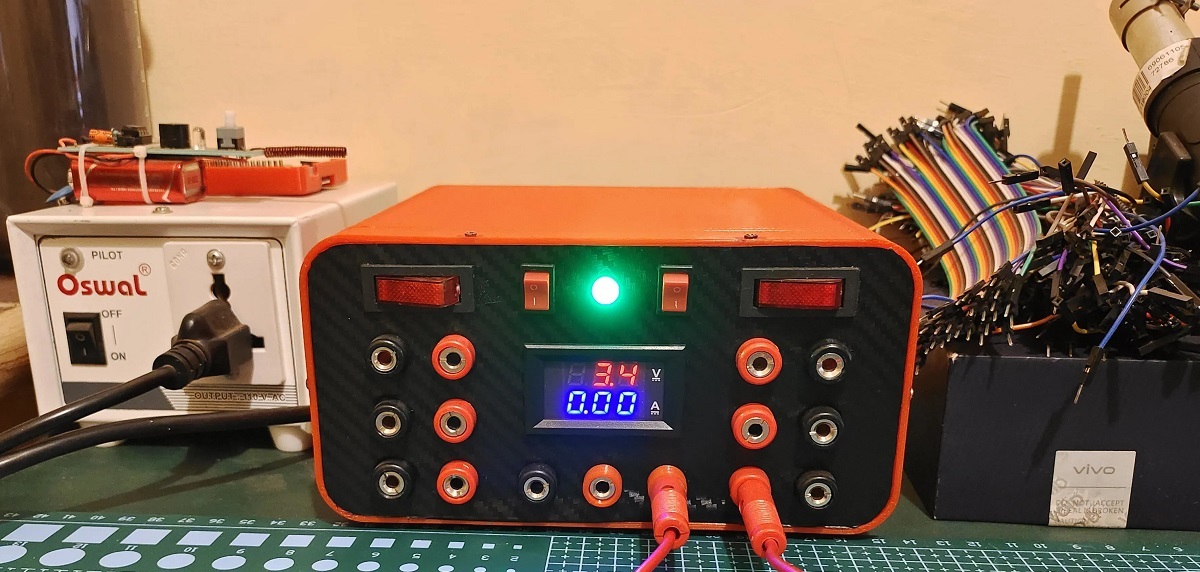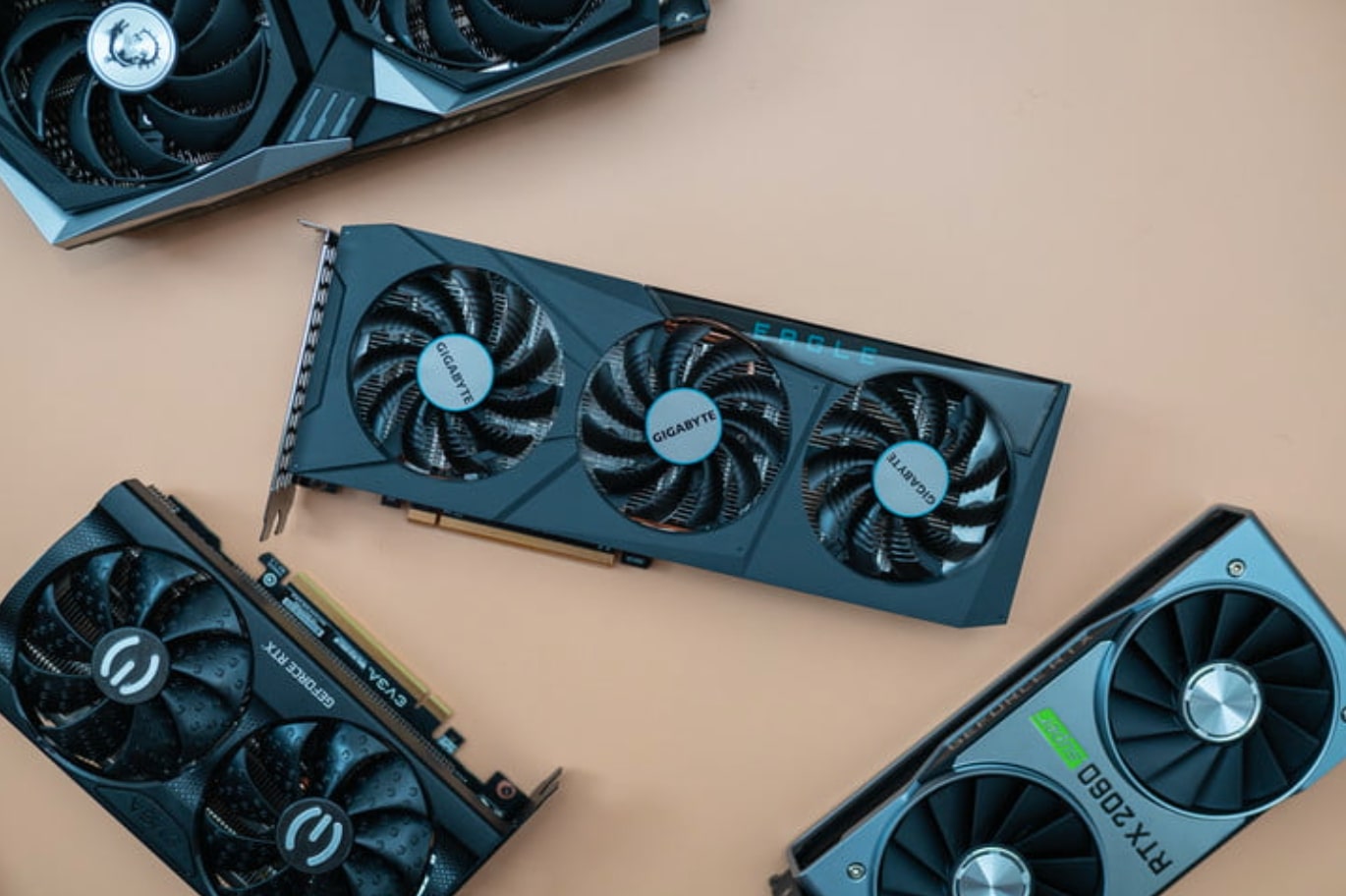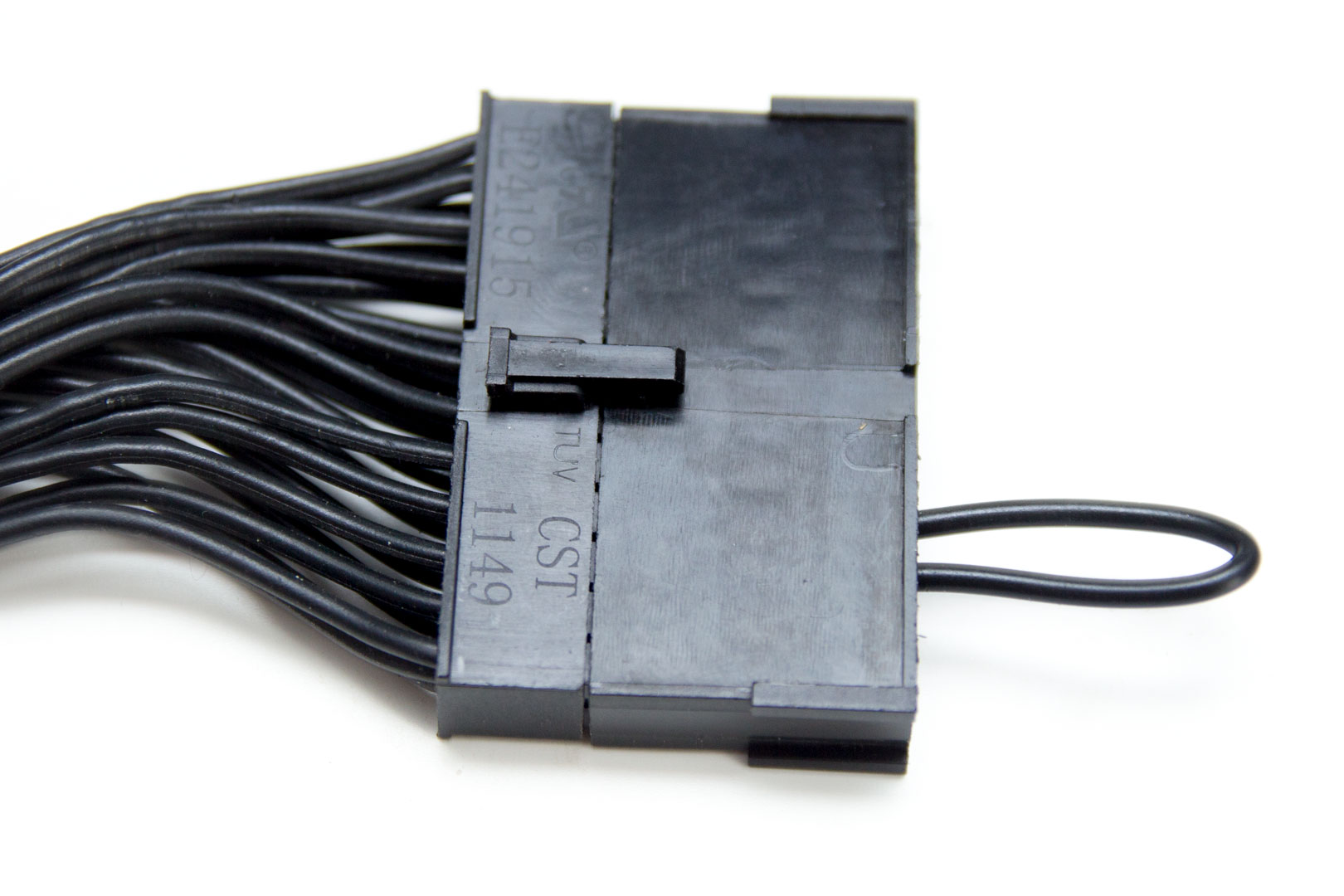Introduction
When building or upgrading a computer system, one of the often overlooked but crucial components is the power supply unit (PSU). The PSU is responsible for delivering stable and reliable power to all the other components, ensuring their proper function and longevity. However, determining how much to spend on a PSU can be a challenging task.
While it may be tempting to skimp on the PSU budget and allocate more funds to other components, such as the CPU or graphics card, it is important to remember that a low-quality or underpowered PSU can lead to system instability, component damage, and even complete system failure. Therefore, it is essential to carefully consider several factors to determine how much you should spend on a PSU.
Factors such as your system’s power requirements, efficiency and power ratings, quality and reliability, and even your overclocking plans should all be taken into account when setting your PSU budget. A well-planned and adequate PSU budget can save you from future headaches and ensure a smooth and efficient operation of your computer system.
In this article, we will explore these factors in detail and provide recommendations for PSU budgets based on different usage scenarios. Whether you are building a gaming rig, a high-performance workstation, or a budget-friendly system, we will help you make an informed decision on how much to spend on a PSU that meets your specific needs and ensures the stability and longevity of your computer system.
Factors to Consider When Determining PSU Budget
When setting your budget for a power supply unit (PSU), there are several important factors that you should consider. These factors will help you determine the appropriate amount to allocate for this critical component of your computer system. Let’s take a closer look at each of these factors:
- Power Requirements for Your System: The first factor to consider is the power requirements of your system. Different components, such as the CPU, GPU, and drives, have specific power consumption needs. It’s important to calculate the total power consumption of your system and choose a PSU with an appropriate wattage output. Allocating a sufficient budget for a PSU that can handle your system’s power demands will ensure stable and reliable operation.
- Efficiency and Power Ratings: PSU efficiency plays a crucial role in determining how much you should spend. A higher efficiency rating, such as 80 Plus Bronze, Silver, Gold, or Platinum, indicates better power conversion and reduced energy waste. Although higher-rated PSUs may cost more upfront, they can save you money on electricity bills in the long run. Evaluate the efficiency and power ratings of PSUs within your budget range to find the optimal balance between cost and performance.
- Quality and Reliability: Investing in a high-quality and reliable PSU is essential to protect your system and components. Budget PSUs often cut corners in terms of build quality, component selection, and safety features. Spending a bit more on a well-known and reputable brand that offers reliable warranties and customer support can provide peace of mind and ensure the longevity of your system.
- Overclocking Considerations: If you plan to overclock your system, it is crucial to choose a PSU that can handle the increased power requirements. Overclocking puts additional strain on the components and can result in higher power consumption. Allocate a higher budget for a PSU with sufficient wattage and stable voltage output to support your overclocking endeavors.
By carefully considering these factors, you can determine an appropriate budget for your PSU that aligns with the specific needs and requirements of your computer system. As we delve into the specific usage scenarios later in this article, we will provide recommendations for PSU budgets to help you make an informed decision.
Power Requirements for Your System
One of the most important factors to consider when determining your PSU budget is the power requirements of your system. Every component in your computer system consumes a certain amount of power, and it’s crucial to have a PSU that can provide sufficient wattage to meet these requirements.
Calculating the power consumption of your system involves assessing the power needs of each component individually and adding them up. The main components to consider include the CPU, graphics card (GPU), motherboard, RAM, storage drives, and any additional peripherals. Additionally, factors such as the number of USB devices, RGB lighting, and cooling fans should also be taken into account.
To estimate the power needs of your components accurately, you can refer to manufacturer specifications or use online power supply calculators. These calculators take into account the model or specific characteristics of each component, providing a reliable estimate of the total power consumption. Once you have this figure, consider choosing a PSU with slightly higher wattage to allow for future upgrades or additions to your system.
The typical power consumption of components can vary significantly depending on their model, manufacturer, and specific usage. For example, high-end gaming graphics cards and CPUs tend to have higher power requirements compared to entry-level or mid-range options. Similarly, if you plan to use your system for tasks like video editing or 3D rendering, which put a heavy load on the CPU and GPU, you’ll need a PSU with a higher wattage.
When determining your PSU budget based on power requirements, it’s essential to strike a balance. On one hand, you want to ensure that your PSU can deliver enough power to all your components, supporting stable and reliable operation. On the other hand, you don’t want to overspend on a PSU that significantly exceeds your system’s requirements, as this can be unnecessary and costly.
By accurately calculating the power needs of your system and choosing a PSU with an appropriate wattage, you can ensure that your components receive enough power for optimal performance while avoiding potential issues caused by underpowered or overloaded PSUs.
Efficiency and Power Ratings
When determining your PSU budget, it’s crucial to consider the efficiency and power ratings of the power supply unit. PSU efficiency refers to how effectively the unit converts AC power from your wall outlet to the DC power required by your computer components. Higher efficiency ratings indicate better power conversion and reduced energy waste, making them an important factor to consider.
The efficiency of a PSU is often certified using the 80 Plus rating system, which classifies PSUs into various categories such as 80 Plus White, Bronze, Silver, Gold, Platinum, and Titanium. Each rating represents a different level of efficiency, with Titanium being the highest and White being the lowest. As the rating increases, so does the efficiency, resulting in lower energy consumption and reduced heat generation.
While PSUs with higher efficiency ratings tend to be more expensive, they can provide long-term cost savings due to reduced energy consumption. Additionally, they often incorporate higher-quality components and better design, resulting in improved reliability and performance.
When setting your PSU budget, it’s important to find the right balance between cost and efficiency. If you’re on a tight budget, a PSU with a lower efficiency rating may be more affordable. However, if energy efficiency and long-term savings are important to you, it may be worth considering a PSU with a higher efficiency rating, even if it means allocating a slightly larger budget.
In addition to efficiency, you should also consider the power ratings of the PSU. The wattage rating indicates the maximum power that the PSU can deliver to your system. It’s crucial to choose a PSU with sufficient wattage to handle the power requirements of your components comfortably. Allocate a larger budget for a PSU with a higher wattage if you have power-hungry components or if you plan to upgrade your system in the future.
Overall, considering the efficiency and power ratings of a PSU will help you make an informed decision when determining your budget. While higher-rated PSUs may come with a higher price tag, they often provide better efficiency, improved reliability, and longer-term cost savings.
Quality and Reliability
When determining your PSU budget, it is essential to prioritize quality and reliability. Investing in a high-quality and reliable power supply unit is crucial to ensure the longevity and stability of your computer system.
Budget PSUs often compromise on build quality, component selection, and safety features to cut costs. These lower-quality PSUs may have shorter lifespans, inadequate voltage regulation, and poor protection mechanisms, which can lead to system instability, component damage, and even pose a safety risk.
Choosing a PSU from a reputable brand known for its reliability is a wise investment. These brands have a reputation to uphold and often undergo rigorous testing and quality control measures to deliver products that meet stringent standards. They also offer better warranties and customer support, providing peace of mind if any issues arise with the PSU.
When setting your budget, allocate enough funds to choose a PSU from a reputable brand with positive reviews and user feedback. These PSUs may be slightly more expensive, but the additional cost is justified by the improved build quality, higher-grade components, and enhanced safety features.
Another factor to consider when evaluating the quality and reliability of a PSU is its certification. Look for PSUs certified with industry standards such as 80 Plus, Ecos, or Cybenetics. These certifications ensure that the PSU has undergone rigorous testing to verify its performance, efficiency, and reliability.
Additionally, consider the warranty offered by the PSU manufacturer. A longer warranty period indicates the manufacturer’s confidence in their product’s quality and can provide you with added protection in the event of any malfunctions or defects.
By allocating a reasonable budget for a high-quality and reliable PSU, you can prevent potential system issues and ensure the smooth and stable operation of your computer system. Remember, when it comes to power supplies, investing in quality today can save you from costly repairs or replacements in the future.
Overclocking Considerations
If you plan on overclocking your system, it is essential to consider this when determining your PSU budget. Overclocking involves increasing the clock speeds and voltage of your components, which can significantly increase their power consumption.
Overclocking your CPU and GPU can lead to higher performance and better gaming experiences. However, it also puts additional strain on your components, resulting in increased power requirements. To support stable and reliable overclocking, it is crucial to choose a PSU with sufficient wattage and stable voltage output.
When setting your PSU budget, make sure to factor in the power demands of overclocking. Estimate the maximum power consumption of your components during overclocked operation and choose a PSU with a wattage rating that exceeds this estimation. Allocating a higher budget for a PSU with more headroom can prevent power shortages and instability caused by insufficient power supply to the overclocked components.
In addition to wattage, consider the PSU’s voltage regulation. Overclocking can put additional stress on the voltage regulation circuitry of the CPU and GPU. Choosing a high-quality PSU with stable voltage output at different loads and temperatures can help to mitigate potential instability and voltage spikes that can damage your components.
Furthermore, consider the efficiency of the PSU when overclocking. Overclocking increases power consumption, and a PSU with lower efficiency may result in higher energy waste and heat generation. Investing in a PSU with a high efficiency rating, such as 80 Plus Gold or Platinum, can help to minimize energy waste and maintain stable power delivery during overclocked operation.
Lastly, when overclocking, it is recommended to choose a PSU from a reputable brand known for its reliability and quality. Overclocking increases the stress on the PSU, and using a reliable and well-built unit can help to ensure the stability and longevity of your system.
In summary, allocating an appropriate budget for a PSU that can accommodate the power requirements of overclocking is crucial. Consider the wattage, voltage regulation, efficiency, and brand reputation when selecting a PSU for your overclocked system. By choosing the right PSU and setting an adequate budget, you can unleash the full potential of your components while maintaining stability and longevity.
PSU Budget Recommendations for Different Usage Scenarios
The appropriate PSU budget can vary depending on your specific usage scenarios. Whether you are building a gaming rig, a high-performance workstation, or a budget-friendly system, here are some recommendations to help you determine the right PSU budget:
- Gaming Rig: Gaming PCs typically require a power-hungry GPU and CPU to handle the demands of modern games. For a gaming rig, it is recommended to allocate a larger budget for a PSU with a wattage range between 600W to 800W. This will provide enough power for overclocking, future upgrades, and optimal performance.
- Workstation or Content Creation: If you are using your computer for tasks such as video editing, 3D rendering, or other CPU and GPU-intensive workloads, it is important to have a reliable and robust power supply. Allocate a larger budget for a PSU in the range of 750W to 1000W to handle the power requirements of professional-grade components and ensure stable operation.
- Budget-Friendly System: For a budget-friendly system that focuses on basic computing tasks, such as web browsing, document editing, and light multimedia consumption, you can allocate a smaller budget for a PSU. A PSU with a wattage range between 400W to 550W should be sufficient to power these systems and provide stability and efficiency without unnecessary expense.
- Silent PC or HTPC: If you are building a silent PC or a home theater PC (HTPC), where noise reduction is a priority, it is recommended to choose a PSU with higher efficiency and a silent or semi-passive cooling design. Allocate a budget for a PSU with a wattage range between 400W to 600W that can maintain low noise levels while delivering power-efficient performance.
- Small Form Factor (SFF) PC: In a compact small form factor PC build, space and efficiency are crucial. Allocate a budget for a modular or semi-modular PSU with a wattage range between 450W to 650W to ensure compatibility, cable management, and efficient power delivery in the limited space of small form factor cases.
Remember that these are general recommendations, and specific system configurations and requirements may vary. It is always advisable to research and evaluate the power needs of your individual components and double-check their compatibility with the recommended PSU wattage ranges.
By considering your specific usage scenario and allocating an appropriate PSU budget, you can ensure that your system receives sufficient and reliable power to meet its demands, ensuring optimal performance and longevity.
Conclusion
When determining the appropriate budget for a power supply unit (PSU), there are several factors to consider that will help you make an informed decision. By carefully assessing the power requirements of your system, considering the efficiency and power ratings of the PSU, prioritizing quality and reliability, and taking overclocking considerations into account, you can determine a suitable PSU budget that aligns with your specific needs and usage scenarios.
It is crucial to allocate an adequate budget for a PSU that can handle the power demands of your components, ensuring stability and reliability. Choosing a PSU with a higher efficiency rating, such as 80 Plus Gold or Platinum, can provide long-term energy savings and reduce heat generation. Additionally, investing in a PSU from a reputable brand known for quality and reliability will help protect your system and components.
If you plan on overclocking your system, it is essential to allocate a higher budget for a PSU with sufficient wattage and stable voltage output to support the increased power requirements. This ensures stable operation and protects against potential instability or damage caused by inadequate power delivery.
For different usage scenarios, such as gaming rigs, workstations, budget-friendly systems, silent or small form factor PCs, there are specific PSU budget recommendations. These recommendations consider the power needs and performance requirements of each scenario to help you choose the right PSU within your budget range.
Remember, selecting an appropriate PSU and setting a reasonable budget is vital to ensure the stability, efficiency, and longevity of your computer system. By considering the factors discussed in this article, you can make an informed decision and confidently choose a PSU that meets your needs without overspending or compromising on quality and performance.

























